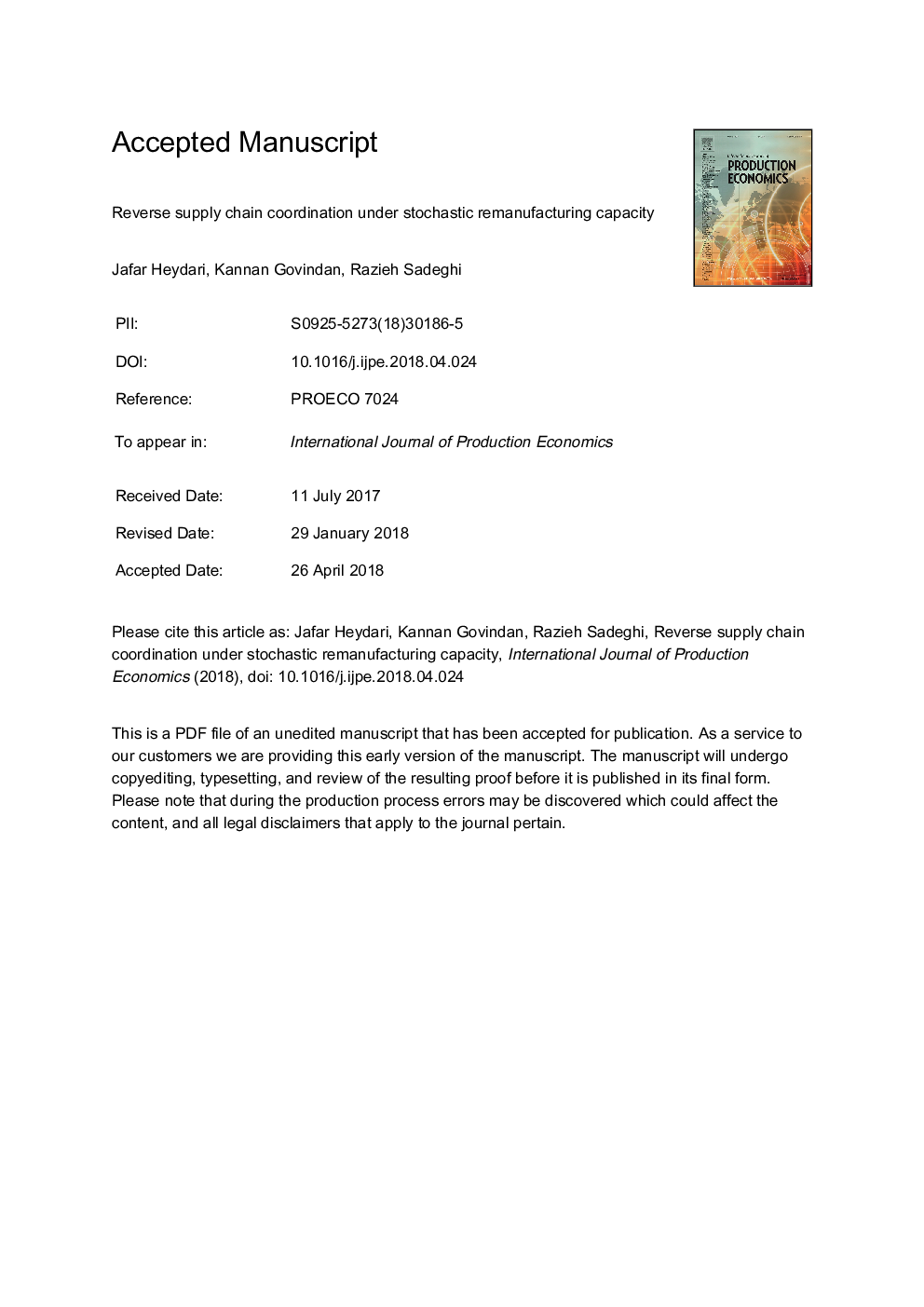| کد مقاله | کد نشریه | سال انتشار | مقاله انگلیسی | نسخه تمام متن |
|---|---|---|---|---|
| 7355056 | 1477502 | 2018 | 33 صفحه PDF | دانلود رایگان |
عنوان انگلیسی مقاله ISI
Reverse supply chain coordination under stochastic remanufacturing capacity
ترجمه فارسی عنوان
هماهنگی زنجیره تامین معکوس در ظرفیت بازسازی تصادفی
دانلود مقاله + سفارش ترجمه
دانلود مقاله ISI انگلیسی
رایگان برای ایرانیان
کلمات کلیدی
زنجیره عرضه معکوس محصول منسوخ، ظرفیت بازسازی تصادفی، هماهنگی زنجیره تامین،
موضوعات مرتبط
مهندسی و علوم پایه
سایر رشته های مهندسی
مهندسی صنعتی و تولید
چکیده انگلیسی
In this paper, a two-stage reverse supply chain (RSC) is analyzed where the retailer pays rewards to customers to return obsolete products and the manufacturer refurbishes eligible returned items through remanufacturing process. Remanufacturing capacity is assumed as a stochastic variable. Under the uncertainty of remanufacturing capacity, it is possible that some inspected and eligible items could not be processed. If a bought item could not be processed, it should be salvaged at low prices and be considered a lost profit. In such situations, increasing the number of returned obsolete products is suitable where there is a high probability for enough capacity in the remanufacturing process. In this study, a stochastic model is developed to find the optimal paid reward to customers under both scenarios, including decentralized (where the retailer decides independently on reward amount) and centralized (where reward amount is determined based on the whole channel interest). By sharing the manufacturer's capacity risk, a revenue sharing contract is proposed to convince the retailer to consider uncertainty of remanufacturing capacity in deciding reward amount. Under the proposed contract, a part of retailer revenue is postponed until the remanufacturing process is completed. Non-eligible items, as well as those that cannot be processed due to insufficient capacity are not involved in revenue sharing with the retailer. Our numerical investigations reveal that the proposed scheme is able to coordinate the investigated RSC under the uncertainty of remanufacturing capacity. Contrary to the decentralized scenario, the proposed model recommends fewer paid rewards to customers when there is a high possibility of insufficient capacity in the remanufacturing process.
ناشر
Database: Elsevier - ScienceDirect (ساینس دایرکت)
Journal: International Journal of Production Economics - Volume 202, August 2018, Pages 1-11
Journal: International Journal of Production Economics - Volume 202, August 2018, Pages 1-11
نویسندگان
Jafar Heydari, Kannan Govindan, Razieh Sadeghi,
